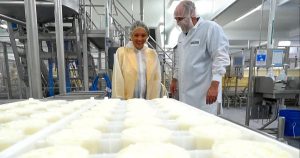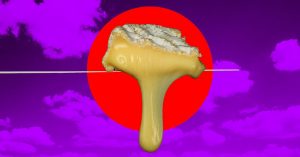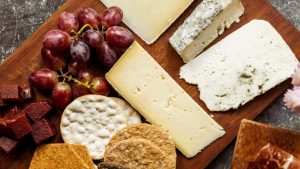
Osteoporosis, sarcopenia and cognitive impairment are some of the difficulties we face towards old age, and there is a common food that can help us counteract these effects, with its presence in the daily diet throughout life, and it is also a pleasure: cheese.
What we eat today is energy and regeneration for now, but it ensures our well-being tomorrow. A good nutrition strategy will pay off in the future.
There are more than 2,000 varieties of cheese in the world and countless ways to use them. They differ in consistency and flavor, each with unique characteristics.
They can be classified by the origin of the milk from which they originate: cow, goat, sheep, buffalo, and even mixtures of these. According to their maturation process, their hardness, consistency, interior texture, compact or granular, with and without holes like cheddar or gruyere, or with irregular holes like pategras.
We can also differentiate them by their rind: without rind like cream, with a natural dry rind, with a moldy rind like brie, or with an artificial rind.
Cheeses are delicious dairy products that can be used in the preparations of every meal of the day, in meetings and feasts, gathering friends and family around a finger food table or a fondue, in sandwiches, in breakfast toasts, not to mention pizzas, and grated on pasta and also in its interior as filling, in creams and sweet and savory sauces. In desserts, pies and cakes. In salads such as caprese or arugula.
The list could go on and on, because it is also easy to go for the side of enjoyment through taste, but I do not forget that I came here because I came to tell you that cheese is healthy and useful to cushion the impact of osteoporosis, sarcopenia and cognitive deterioration in old age. Let’s see why what we consume between the beginning and the average of our lives is key to be optimal towards the end.
Osteoporosis
Osteoporosis is characterized by a systemic deterioration of bone mass, strength and microarchitecture, resulting in increased risk of fragility, fracture, disability, loss of independence and even death. Foods rich in vitamin D and calcium help prevent it. The consumption of dairy products such as cheese throughout life and into adulthood ensures the incorporation of all the fundamental compounds in the maintenance and strengthening of bone density.
Sarcopenia
Consuming cheese at all stages of life helps our body to combat sarcopenia, which is the progressive loss of muscle mass in aging, with the consequent loss of strength and balance.
Cheese, a great source of calcium, magnesium, phosphorus, potassium, zinc, selenium, vitamin A, riboflavin, vitamin B12 and pantothenic acid, participates directly and indirectly with all this battery, in the conservation of the muscular functional structure, conditioning its development and correct functioning, favoring the proliferation of the cells that make up the contractile machinery and the strength of the neuromuscular junction at the beginning of life. In adulthood, it enhances skeletal muscle health and the effects of exercise on muscle strength and endurance, delaying its degradation.
Cognitive impairment
It has been studied that cheese consumption can contribute significantly to protecting the brain. This is one of the main conclusions of a study conducted by researchers at Iowa State University, recently published in the Journal of Alzheimer’s Disease. This study is the first of its kind large-scale analysis connecting specific foods with cognitive acuity later in life, and it found that cheese is a food that has a strong protective property against age-related cognitive decline.
In a world where we are constantly exposed to multiple voices trying to convince us that we are vulnerable to what we grew up believing was good for us, and where if we eat with pleasure we also eat with guilt, it is comforting to know that it is finally good that gives us pleasure.
Today, cream cheese on toast to start the day and not to forget that it’s good to consume dairy products!
Have you had your glass of milk today?
Valeria Guzmán Hamann
EDAIRYNEWS























